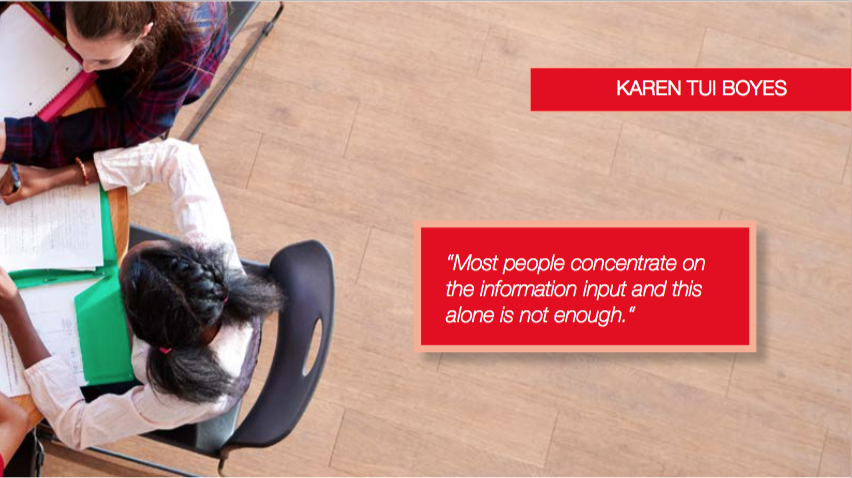Tips for Studying Smarter

If you have exams coming up, there is an art to revising and studying in the last few weeks and days.
“The challenge is most people study for input – not output,” says Gretchen Wegner, an Academic Life Coach. The process of being able to pass an exam is all about retrieval of information. What can you recall from your classes, lectures, notes and study time? Most people concentrate on the information input and this alone is not enough. Gretchen talks about learning being a three-step process.
- Step 1: Information goes into or is encoded by the brain.
- Step 2: Information comes out of the brain, which isretrieval.
- Step 3: Information that was not recalled or retrieved requires relearning.Steps two and three are critical to great exam preparation. Simply rereading or copying your notes is only addressing step one, and won’t be enough.Here are some of the top tips to help you ace your exams:
Start by working out what you do remember. You are trying to find out what stuck and what didn’t from the learning. There are many ways to do this.
- Ask someone to test you to see what you can recall.
- Blank out the key words, phrases and ideas from a text and see if you can recall the answers in 1-2 hours or in a day’s time.
• Use flash cards. These are especially great for any subject that has dates, facts, formulas and processes to recall. • Recreate the diagrams and charts from memory.
The purpose of these activities is to find out what you can recall, and even more importantly what you DON’T know yet. This is the information you need to relearn. It may have gone into your brain during class, but if you can’t retrieve it, you don’t know it – yet. This self-test stage is crucial to your success and one that many students don’t bother with, hoping everything will just be recalled in the pressure of the exam. This is actually very unlikely, as memory is even harder to access when under most stress producing situations.
Once you are aware of what you don’t know, it is time to relearn it. The key here is to cause the input or encoding into the brain to enter in DIFFERENT ways. Ideas include:
• Watching other teachers teach the information on YouTube.
• Read and highlight the information from different sources.
• Discuss the information with a classmate, tutor or a parent.
• Teach or explain the information to someone who knows little or nothing about it. This might include parents or siblings.
• Summarise the key points into a diagram or infographic.

- Create flash cards of the information you still need to learn.
- Create movements, or a mini dance to recall key ideas.
- Use memory peg techniques to learn the facts, dates and data.Now go back to Step two and self-test. What has stuck? What can you remember and what do you need relearn by inputting it again? Repeat the last two steps until you know the content.Segmented repetition might help with the challenging content. Go over it a few times each week. Just as you may have rewritten spelling words and repeated your multiplication facts over and over again, regular repetition can help. Of course, only do this with the information you are unable to recall. Repetition on the information you can already recall and understand is a huge waste of your time and energy.
In the weeks leading up to your exams, take time once a week to self-test with all the information, including the material you already know. Doing this over a series of weeks will highlight your progress and increase knowledge.
Finally, Seth Perler, an executive function coach, suggests one of the best ways to study for an exam is to hold a study party!
The research shows one of the best ways to learn is to teach the content to others. Invite your friends and classmates over for a 3-5 hour study party. Encourage them to bring ‘brain food’ and test each other. Once you all know what you don’t know, use the tips and strategies above to learn and support each other.
You may find it beneficial to use the iStudyAlarm app to time your group for 20 minutes of focused learning and then take a 5 minute break. During this break, have a dance party, eat food, bounce on the trampoline, shoot some hoops, kick a ball around outside, etc. The key here is to do something to re-energise your mind and body for five minutes only. Then get back to the focused learning!
For more study and exam tips, download the iStudyAlarm on your phone. It’s free and simple to use.
Study Smart & Pass!
